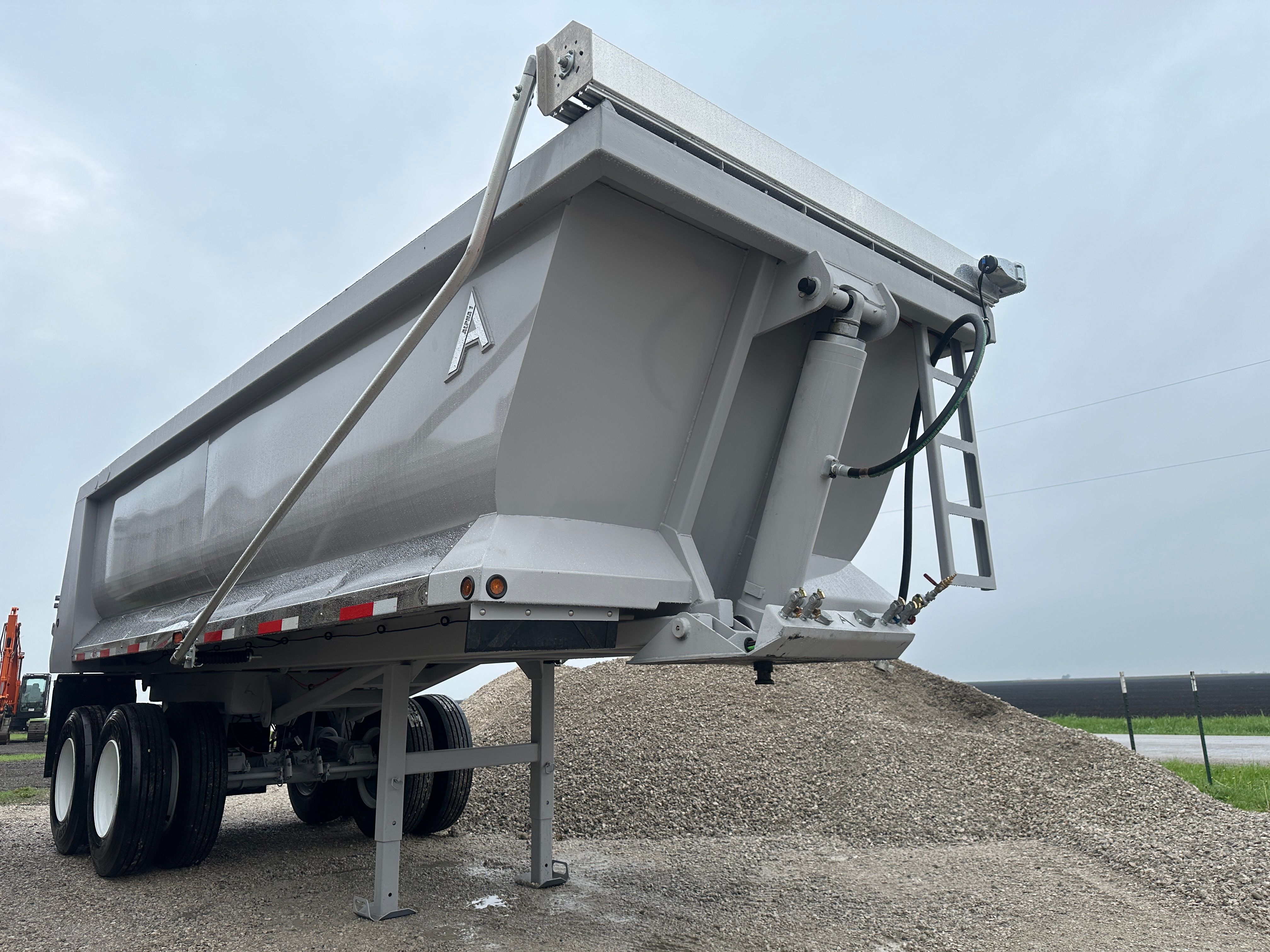
Steel vs. Aluminum Dump Trailers: What’s Better for You?
tj@civsav.com
© 2026 Civilized Savage
Based in USA
tj@civsav.com
Buying a dump trailer isn’t just about picking what looks good or fits the budget. The material you choose, steel or aluminum, makes a big difference in how the trailer performs, holds up over time, and how often it needs repairs. Whether you’re hauling concrete, scrap, or mulch, your trailer should match the demands of the job. This guide breaks down the pros and cons of both steel and aluminum dump trailers so you can make a smarter, longer-lasting investment.
When it comes to brute strength, steel is hard to beat. It’s thicker, denser, and built to handle constant abuse—like sharp debris, big rocks, and rough terrain. That’s why steel dump trailers are the go-to choice for demolition, scrap, and heavy material jobs. They can take a hit without warping or cracking.
Aluminum, while lighter, can be more fragile under pressure. Over time, it’s more likely to develop stress cracks around welds, especially if used in rugged environments. It’s still a strong option, but it’s not made for repeated hard impacts.
If you’re hauling softer materials like mulch or working mostly in landscaping, aluminum might hold up just fine. But for heavy-duty work, strength matters more than shine.
ALKO: “Our steel trailers are built to handle tough loads every day—because we know job sites don’t go easy on gear.”
Weight matters more than people think. Aluminum dump trailers are noticeably lighter than steel ones, which means your tow vehicle doesn’t have to work as hard. That can mean better fuel mileage and easier handling—especially helpful if you’re on the road every day.
Steel trailers are heavier. They add more load before you even put anything in them. You may need a heavier-duty truck just to tow it safely, especially when fully loaded.
Here’s where it gets tricky: many buyers focus only on payload (how much the trailer can carry) and forget to factor in tare weight (how much the trailer weighs empty). That difference can eat into your legal hauling limit.
Example: A landscaper running mulch loads across town might save money and fuel with a lighter aluminum trailer. But an excavation crew moving wet clay or broken concrete? They’ll want the brute strength of steel, even if it means using a larger tow rig.
Aluminum trailers usually cost more up front, and that price tag can scare buyers off. But there’s a reason: they don’t rust, they’re lighter, and they often keep their resale value better over time.
Steel trailers are more affordable in the beginning. If you’re on a tight budget or you just need something to get started, steel makes sense. But you’ll need to stay on top of rust protection. Uncoated or neglected steel can turn into a costly problem fast.
So which is better in the long run? That depends on how you use your trailer. If you're hauling daily in wet, salty, or rough environments, aluminum might pay off in fewer repairs. If you're doing short hauls, or have a good place to store and maintain your gear, steel could give you a great return without the extra spend.
Every trailer needs care, but the type of care depends on the material.
Steel trailers need more attention. You’ll want to keep them clean, especially after driving in rain or over salted roads. A fresh coat of paint or undercoating goes a long way. Don’t ignore chips or scratches, they can turn into rust pockets if left alone.
Aluminum resists rust, which is a major plus. But that doesn’t mean it’s maintenance-free. Repeated stress can cause cracks near welds or hinges, and repairs can be tricky without the right tools.
Pro Tip: Wash down your trailer regularly, check your welds monthly, and inspect your lights, wiring, and fasteners. Preventive maintenance beats roadside repairs every time.
The bottom line? Ownership costs don’t stop at purchase. Choosing a trailer that fits your environment and keeping up with care makes a real difference.
Not every job needs the same trailer. The material you haul, your route, and even the weather can all influence which trailer works best.
If your day-to-day involves concrete, gravel, demolition debris, or scrap metal, steel is usually the better bet. It’s built to take the hits and keep going. The extra weight is worth it when you need strength that doesn’t quit.
For landscaping, mulch, or general debris, aluminum trailers do the job well. They’re easier on your truck, burn less fuel, and are great for short hauls and lighter-duty tasks. Many contractors use them daily without a hitch,literally.
This one isn’t as clear-cut. Aluminum holds up against rust, which is great in coastal or winter areas. But steel, with the right care, can also last for years in rough spots. The real key? How well you maintain it.
When choosing, don’t just look at your tow rig, match the trailer to the kind of stress your job puts on it.
Across construction, paving, farming, and even municipal jobs, we see one trend: smart buyers think in terms of work fit, not just price tags.
Some crews run all steel. Others go all aluminum. But many run a mix. A steel trailer hauls demo loads. An aluminum one handles landscape work. It’s about having the right tool for each task.
ALKO Tip: We build both styles. And we don’t just sell, we listen, spec, and help you choose what fits your job, not what’s easiest to move off the lot.
There’s no one-size-fits-all answer. Some jobs demand rugged strength. Others need something lighter and more fuel-friendly.
If you’re hauling heavy loads on rough terrain, steel is probably your match. For lighter material or shorter hauls, aluminum might save you money over time.
Bottom line: Think about what you haul, how often you haul it, and what your truck can handle. That’s how you avoid regrets,and repairs.
Still unsure? Talk to our team, we’ll help you spec the right trailer.
Get in touch
© 2025 Civilized Savage
